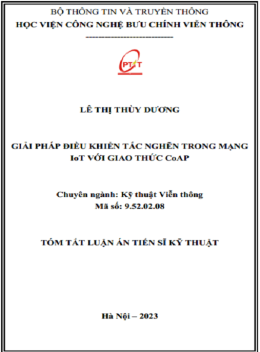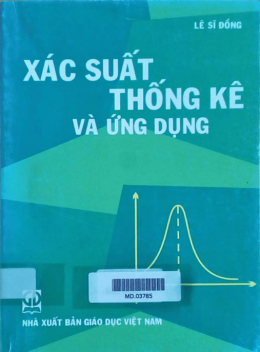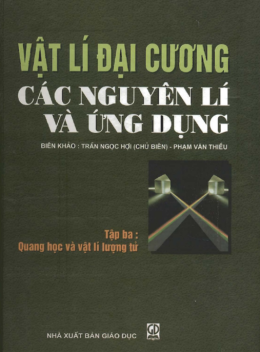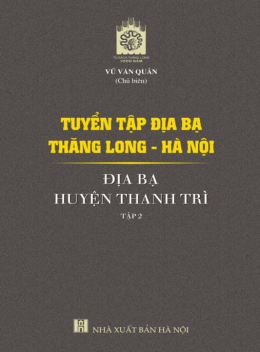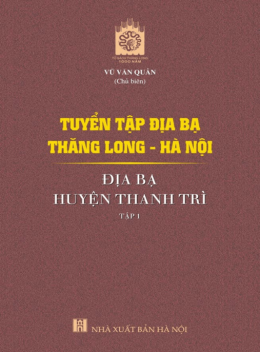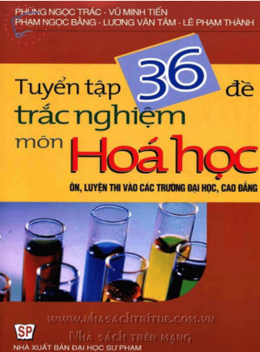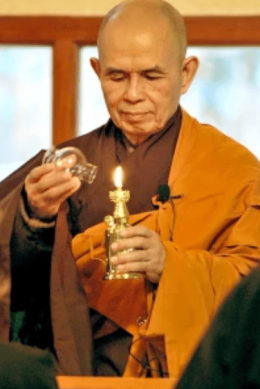
Thich Nhat Hanh Dharma Talks – Web Tải Sách Miễn Phí Ebooks PDF
Giới thiệu & trích đoạn ebook
Sách Thich Nhat Hanh Dharma Talks của tác giả Thích Nhất Hạnh mời bạn thưởng thức.
There are seven kinds of pride-called the Seven Prides. The first kind of pride is when we say that we are better than others; we feel that we are better than others. It is also pride to say we are just as good as others and to say that you are worse than others, so we can have pride towards those who are not as good as us, or equal to us, or we say that we are better than them. When people are the same as us, and we say we are better, then we can see that we shouldn’t do that. Why can’t we say that we are better than people who are not as good as us? According to Buddha, people who are not as good as us have Buddha nature just the same as we do; they have the awakening nature just the same as us. Just because the conditions and causes have not been sufficient enough for them to be able to develop that awakened nature, we are not better than they are. In fact, if they had had the right causes and conditions they might well do better than us. We always think that the other person could never be as good as us, so pride is not only to think we are better than those who are equal to us, but it is also to think that we are better than those who are not as good as us.
The second kind of pride is when someone is equal to us and we say that we are better than them, and when someone is better than us, we say we are equal. You’re not any better than me; you’re just the same. The third kind of pride is when the other person is better than we are and we say that we are better than them. It is not enough to say that we are equal to someone who is better than we are, but when we say we are better than somebody who is better than us – that is going too far. The fourth pride is self-pride, pride of self. That is the basic pride, the root of all pride. We see that the five aggregates are us – the five aggregates are self, or they belong to the self. They are me or they are mine. In our everyday language we say we are very proud – in Vietnamese we say we are very proud of ourselves – but that doesn’t really mean what it means here. We are not awakened, yet we say we have realized. This is one of the very important precepts of a monk or nun, very severe. Even though someone has not made realizations in the practice they say that they have made realizations in the practice, or they do things to make people think they have realizations in the practice, and they offend against the precept. All these are superiority complexes.
Then there is the complex of being worse than others – thinking we’re not worth anything, an inferiority complex. In the novice precepts there is a sentence describing this in Chinese – if the other is a hero then we can be a hero; we should not despise ourselves… And finally there is wrong pride, which means we do not have virtues, but we make out that we have virtues. We call our self, “The Venerable One”. We do not have compassion and love, but we make out we have compassion and love. We don’t have insight, but we make out we have insight. These are of the seven different manifestations; forms according to the Abidharma Koshasastra of Vasubandhu. There are also theories of three prides… the ten prides, etc. Our substance is this equal nature, the Samathajnana, the sameness, the equal-ness nature – to be able to see the sameness and the equal-ness of all species with ourselves.
The wrong actions that have imprisoned us have resulted in greed, hatred, ignorance and pride. Today, we sincerely begin anew in order to purify and free our hearts. These words want me to proclaim that I do not want to continue the life of suffering which I have had in the past. I want to develop a new life so that is why I am beginning anew. When I have begun anew, I will have a new energy and I will feel light in my heart and my body, so today we sincerely begin anew. Awakened wisdom bright like the sun and moon – immeasurable compassion, merciful and kind. These are two sentences to praise the Buddha – on the one hand there is compassion and on the other hand there is wisdom. The wisdom of the Buddha is like the sun and moon and the love of the Buddha can rescue very many sentient beings. We resolve to live well throughout our life, going for refuge to the Three Jewels. We look up at the Buddha and see that the Buddha is the example for us to follow – an example of compassion and wisdom. And we want to follow the Buddha, we want to be as Buddha, we want to go on the path of Buddha; we are resolved to live well throughout our life, going for refuge to the Three Jewels. That is, we take whole life and go for refuge with our whole life, all the way, with everything we have. We bring all our life and we invest it in the Three Jewels. We shall take the boat of loving kindness to go over the ocean of sufferings. This is not a matter of belief; this is a matter of action. There is a boat and you get onto the boat – the boat of loving-kindness. It is only that boat that can help me to go over the ocean of suffering and reach the other shore. That is the boat of wisdom, so this is action – it action – it is not a wislı, a desire.
So we shall use the torch of understanding to come out of the forest of confusion, the forest of wrong perceptions. With determination we shall realize learning, reflecting and practice. Learning, reflecting and practice are the progress of the practice. You hear the teachings – you look deeply into want you are listening to – you shine light on what you hear and what you hear shines light on your own thought and on the environment you’re living in. You see how you have suffered and how you have lived and you are determined to get out of that situation by learning, reflecting, and practicing – that is, applying what we have looked deeply into. We have heard, and we have used what we have heard, to look deeply and then we practice. After that, we apply it in our daily lives. With determination we shall realize learning, reflecting and practice. Every day we do this – we learn and we bring what we have learnt to into our daily life.
Sách liên quan

Donate Ủng hộ chúng tớ 1 ly cafe
Nhằm duy trì website tồn tại lâu dài và phát triển, nếu bạn yêu thích Taiebooks.com có thể ủng hộ chúng tớ 1 ly cafe để thêm động lực nha.
Bạn cần biết thêm lý do để ủng hộ Taiebooks.com ?
- Website cần duy trì tên miền, máy chủ lưu trữ dữ liệu tải ebook và đọc online miễn phí.
- Đơn giản bạn là một người yêu mến sách & Taiebooks.com.



